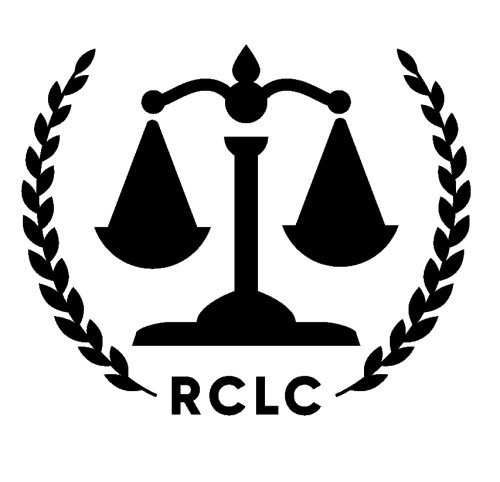Best Agriculture Lawyers in Zimbabwe
Share your needs with us, get contacted by law firms.
Free. Takes 2 min.
Or refine your search by selecting a city:
List of the best lawyers in Zimbabwe
About Agriculture Law in Zimbabwe
Agriculture is a vital sector in Zimbabwe, contributing significantly to the country's economy and providing livelihoods for many. The legal framework governing agriculture in Zimbabwe is essential to ensure fair practices, environmental protection, and sustainable development.
Why You May Need a Lawyer
There are various situations where you may require legal help in agriculture, such as disputes over land rights, water rights, contracts, environmental regulations, labor issues, or compliance with government policies. A lawyer can assist you in navigating these complex legal matters and protecting your rights.
Local Laws Overview
In Zimbabwe, key aspects of agricultural laws include the Agricultural Marketing Authority Act, the Land Acquisition Act, the Labour Act, and the Environmental Management Act. These laws regulate land tenure, water usage, labor relations, and environmental protection in the agriculture sector.
Frequently Asked Questions
1. Can foreigners own land for agricultural purposes in Zimbabwe?
Foreigners can lease land for agricultural purposes but cannot own land outright in Zimbabwe.
2. What are the main requirements for obtaining a farming permit in Zimbabwe?
To obtain a farming permit in Zimbabwe, you need to apply to the relevant government agency, demonstrate land use intentions, and comply with environmental and labor regulations.
3. Are there specific regulations for genetically modified crops in Zimbabwe?
Yes, Zimbabwe has regulations governing the production and importation of genetically modified crops to protect human health and the environment.
4. How are water rights regulated in Zimbabwe?
Water rights in Zimbabwe are governed by the Water Act, which provides for the allocation and use of water resources for agricultural purposes.
5. What are the key labor laws that apply to agricultural workers in Zimbabwe?
The Labour Act and the Agricultural Sector (Labour) Collective Bargaining Agreement set out the rights and obligations of agricultural workers in Zimbabwe.
6. Can I challenge a decision made by the Agricultural Marketing Authority in Zimbabwe?
Yes, you can challenge a decision made by the Agricultural Marketing Authority through the review and appeals process provided for in the Agricultural Marketing Authority Act.
7. Are there any tax incentives for agricultural investments in Zimbabwe?
Yes, the government of Zimbabwe offers tax incentives to promote agricultural investments, such as tax holidays and allowances for capital expenditure.
8. How can I protect my intellectual property rights in agricultural innovations in Zimbabwe?
You can protect your intellectual property rights in agricultural innovations by registering patents, trademarks, or plant breeder's rights with the Intellectual Property Office of Zimbabwe.
9. What are the penalties for violating environmental regulations in the agriculture sector in Zimbabwe?
Violations of environmental regulations in the agriculture sector can result in fines, penalties, and remediation orders imposed by the Environmental Management Agency of Zimbabwe.
10. How can I resolve disputes with my agricultural business partners in Zimbabwe?
You can resolve disputes with your agricultural business partners through negotiation, mediation, arbitration, or litigation in the courts of Zimbabwe.
Additional Resources
For more information and assistance on agricultural laws in Zimbabwe, you can contact the Ministry of Lands, Agriculture, Water and Rural Resettlement, the Agricultural Marketing Authority, the Environmental Management Agency, or legal organizations specializing in agriculture law.
Next Steps
If you require legal assistance in agriculture in Zimbabwe, consider consulting a qualified agricultural lawyer who can provide you with personalized advice and representation to protect your interests and rights.
Lawzana helps you find the best lawyers and law firms in Zimbabwe through a curated and pre-screened list of qualified legal professionals. Our platform offers rankings and detailed profiles of attorneys and law firms, allowing you to compare based on practice areas, including Agriculture, experience, and client feedback.
Each profile includes a description of the firm's areas of practice, client reviews, team members and partners, year of establishment, spoken languages, office locations, contact information, social media presence, and any published articles or resources. Most firms on our platform speak English and are experienced in both local and international legal matters.
Get a quote from top-rated law firms in Zimbabwe — quickly, securely, and without unnecessary hassle.
Disclaimer:
The information provided on this page is for general informational purposes only and does not constitute legal advice. While we strive to ensure the accuracy and relevance of the content, legal information may change over time, and interpretations of the law can vary. You should always consult with a qualified legal professional for advice specific to your situation.
We disclaim all liability for actions taken or not taken based on the content of this page. If you believe any information is incorrect or outdated, please contact us, and we will review and update it where appropriate.
Browse agriculture law firms by city in Zimbabwe
Refine your search by selecting a city.
















